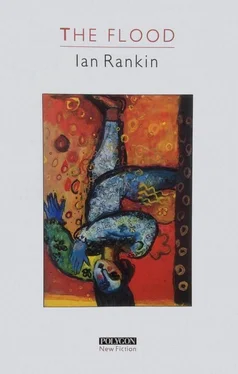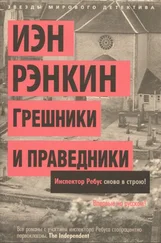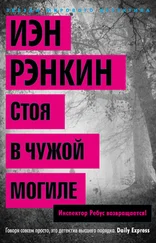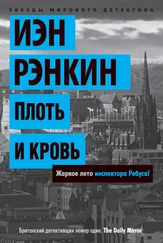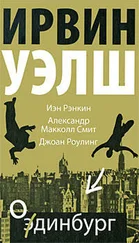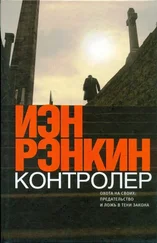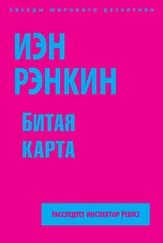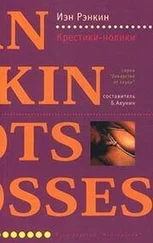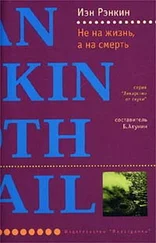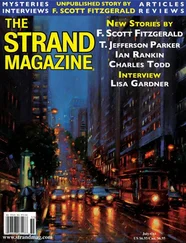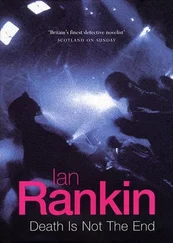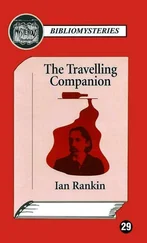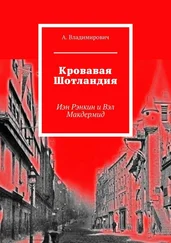He wanted to escape all of this, yet he did not even know what “this” was.
Mark had brought along ten cigarettes. He offered them round as if they were cigars at his daughter’s wedding. Sandy couldn’t not take one. He lit it, but sucked on the cylinder only feebly, exhaling without really having inhaled in the first place. Still his mouth tasted horrible. His stomach began to do its little travelling dance. It was always worst on buses. When he was a child his grandmother used to stand with him at the door of any bus he travelled on, telling him that he would not be sick, and he never was.
He examined the faces along the edge of the bus, studying their reflections in the glass. The sun streamed in, and the tiny openings of the windows caused the passengers to broil. One old man looked on to the countryside as if surprised by it. His head shook like a clockwork toy. Sandy thought to himself that this man must have seen a lot of things — the war, the hunger of the Twenties and Thirties, death, decay, a quickly changing world. What good had it done him? He looked as if he might die at any moment, not having comprehended half of what he had seen in his life. Waste. That was the keyword. Perhaps Sandy would write a story about it all when he returned home. It seemed an important enough thing to write about. He wrote a lot of stories and poems in his room.
He tossed the stub of cigarette on to the dirty floor and crushed it underfoot. The others puffed slowly, drawing in the smoke as if it were life, holding it until their lungs demanded new oxygen, exhaling slowly, their eyes intent on the stream of blue. They were dragons. That was why they smoked. Sandy smiled again. Colin’s mouth had broken out. Severe red patches of acne curved around his lips and chin. A few of the lumps had yellow heads. It was disgusting. Sandy had had the occasional spot, but the lotions his mother now bought for him ensured that he was not, as she had put it, scarred for life. He fingered his face now. He wet the tip of one fingernail and scratched around his nose. He examined the fingernail. A tiny rind of grey was trapped beneath it. He scooped it out with another nail and flicked it on to the floor. Clark and Mark, who sat between Colin and Sandy, discussed records they might buy. There seemed so many. Mark kept the cigarette packet on his lap, as if showing it off to anyone who cared to look. He shook the matchbox against his ear and hummed a pop song to its rhythm. Sandy looked at him and saw that Colin was looking too. They smiled at each other, and Colin put his finger to his skull. Sandy nodded.
They were emerging from the brief countryside now, and approaching the new housing estates which marked the extent to which Kirkcaldy was growing. In a few years, Sandy saw, Carsden would be merely a part of Kirkcaldy, rather than being, as his Geography teacher had put it, a dormitory town. The old man with the nodding head looked at all the white houses where fields had once been. His lips puckered into a wet, creased O. He pointed towards the houses. He was mumbling to himself, ignored by everyone. Sandy knew that people were naive. They would not accept what was happening in the world. Yet, in a way, they were responsible. No, that was not correct. People elsewhere, far, far away from Carsden and these new houses, were to blame. They it was who pushed the town’s boundary out a few more feet. They were to blame, yet Sandy did not know even who “they” were.
He nodded his head. He would be old himself one day, but he would not be as stupid as the old man in front of him. He watched from his window as Kirkcaldy grew before him, exhibiting itself to him proudly. It seemed at once malevolent and strange. There were places here in which to get hopelessly lost. There were gangs here more vicious than any in Carsden. There were tower-blocks and a dark, foaming sea and thousands of people, people whose home he was now invading. Having passed the Georgian houses which sat uneasily around the postwar shopping centre, from the top deck of the bus Sandy could see the sea, the North Sea, in its dark grey covering. Even today, with the sun high above it, the sea remained a grizzled colour of the past. The occupants of the bus were excited now. The old people fretted to get their bags ready, keen to be seen not to be dilatory. Young families shouted at one another. The husband would clasp his cigarette between his teeth and wrestle with the youngest child while the mother pushed around the other children and caused them to scream harder. Mark and Clark hovered above their seats, squinting towards the shops and the Saturday crowd.
‘What’s the plan then?’ asked Colin, sensibly.
‘Record shops,’ said Clark.
‘And the pub,’ said Mark.
They all looked at Sandy for his suggestion. He was still horrified by the squabble in front of him. The old man was tottering towards the stairs. What if the bus toppled over? Then all these people would fall over one another, smothering in a jellied mass of flailing and crying. Horrible. He would smash the back window quickly and crawl out. He would bring help. He looked towards his expectant friends.
‘What’s it to be then, Sandy?’
‘The sea,’ he said, wiping sweat from his forehead. ‘The sea.’
They laughed and slapped him and thought that he was joking.
Andy Wallace revved the car once, turned off the ignition, leapt out, and opened the squeaking gate to Mary Miller’s house. He had brought along a travelling rug, he told her, in case they took a picnic with them. Mary thought it a good idea. She found some meat spread and cheese and made up some sandwiches while Andy fingered the many ornaments in the living room. Most of these ornaments were either Mary’s mother’s or else her grandmother’s. What others there were had been bought for Mary’s birthdays and Christmases by Sandy when a small boy. Andy loathed the tiny ornaments, mostly cheap reproductions, which were to be found crammed into many of the houses, working-class and middle-class, in this part of Fife. He felt they were like useless fancy goods shops — the garish reminders of holidays and the stupid little animals were everywhere. They were part of the sham life that had nothing to do with the realities of the situation. Still, he quite liked Mary’s ornaments: for one thing they were Mary’s, and for another they were mostly rare, original pieces (apart from Sandy’s additions, which were easily discerned). They were also tasteful. He played with a paperweight. It was heavy, and made a satisfying slap in his palm when he tossed it and caught it. This was his kind of ornament.
Mary put everything in a cake tin: sandwiches already wrapped, some biscuits, two hard-boiled eggs, napkins, salt, pepper, a knife. She filled a flask with coffee and milk. Andy came through as she was pouring the water in, thinking to herself of the times when she had, as a youngster, filled her hot-water bottle on cold nights, the task overseen by her mother. Andy said that he had a bottle of wine in his car. Mary brought two glasses out of a cupboard and wiped them. Did he have a corkscrew? He did. She pecked his cheek. He informed her that he also had two crystal glasses in the car. They both smiled. He continued to smile. After a picnic and some wine, lying on a tartan rug in some distant, deserted field, who could refuse him his request?
Mark laughed. He had stolen some cut-price singles from the counter of a small record shop and had not been caught. He fanned them out and laughed. The others smiled nervously. Sandy dared to look behind them as they walked, just to make sure. They would try to get into the afternoon’s X-certificate offering at the ABC, but first they would eat pie and chips from a baker’s shop, then would have a quick pint each at the Harbour Tavern. They were walking now from one end of the High Street to the other, dodging the frazzled shoppers. They glowered at other gangs of four or less, who looked just like them. They grinned at girls their age in tight jeans and budding T-shirts. Clark whistled loudly through the window of a shop to the young girl behind the counter therein. Sandy sang a pop song, allowing his voice to become louder than usual. The shoppers looked at him askance, and he hardly even blushed. They were having a good afternoon. It was Saturday. It was being alive.
Читать дальше
